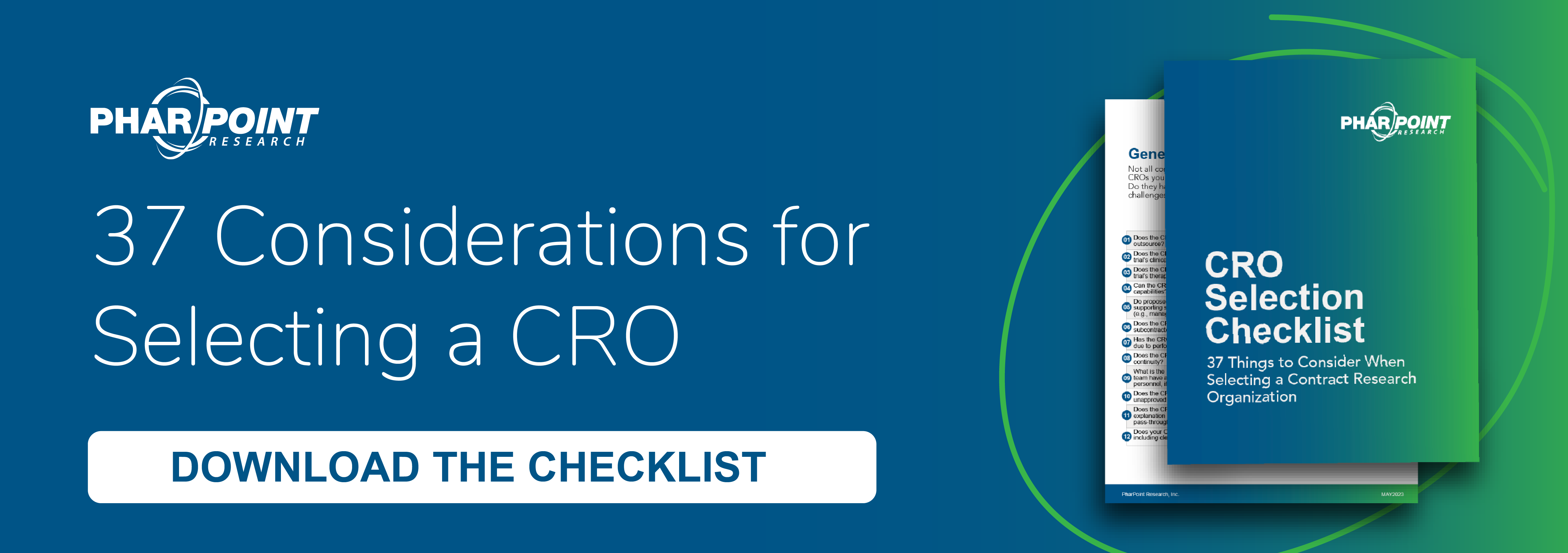
A good working relationship between a sponsor and a contract research organization (CRO) is rooted in shared values, effective communication, and a commitment to quality and compliance.
In this article, we explore key strategies and best practices for ensuring a successful partnership with your CRO, including:
- Transparency during the proposal & bid defense process
- Establishing clear communication channels
- Monitoring performance
Transparency During the Proposal & Bid Defense Process
The request for proposal (RFP) process can be long and arduous, and identifying the best CRO for your needs can be challenging.
However, early interactions with a CRO are critical to developing better relationships and a clear path forward.
In addition to asking the “right” questions, key decision makers on your team should feel the proposal and bid defense processes were honest and collaborative.
“Proposal development is one of the first steps in creating a solid business relationship,” explains Tyler Younger, Director of Proposals at PharPoint.
“With every proposal, we focus heavily on providing a transparent overview of what partnering with PharPoint would be like – what our high-level strategy would be, what kind of experience the study team you’d be working with has, and of course, a budget specifically tailored to your requests with clear assumptions.”
For Younger’s team, steps to producing a transparent proposal include:
- Engaging functional and executive leadership to ensure proposed study teams have both the right capacity and expertise to support a Sponsor’s trial successfully;
- Working with internal subject matter experts to pinpoint potential challenges that may impact study budget or timelines;
- Providing a study budget that clearly outlines assumptions and cost drivers;
- Fostering open and collaborative communication throughout the proposal and bid defense process.
As you navigate the RFP process, ask yourself:
- Am I aligned with this CRO’s values, and are these values demonstrated in my interactions with them?
- Do the study team members I’ve met seem to share my enthusiasm for the project?
- Is the CRO clear on how my proposed study team will involve the people I’m meeting in these early stages?
Establish Clear Communication Channels
Once a contract is signed and a CRO is selected, creating alignment between teams can help develop a better working relationship early.
Remember to consider the importance of a well-planned kick-off meeting. Great communication and study team alignment allow all parties to leverage their strengths and expertise to achieve better outcomes for your trial.
In addition to a kick-off meeting, you should work with your CRO to establish communication plans that fit your needs and work preferences. You may want to consider:
- How often your regularly scheduled meetings with study leads should take place;
- How the CRO plans to incorporate study oversight;
- If a governance committee meeting that includes leadership from both Sponsor and CRO is appropriate;
- What communication and processes will take place surrounding changes in scope;
- What an escalation pathway would look like.
Monitoring Performance
Regularly reporting and tracking project milestones and deliverables is essential to building trust between a sponsor and a CRO. Ongoing reporting allows both parties to identify potential issues early and work together to address them.
Creating a study dashboard that allows real-time access is one way to monitor performance effectively. Your dashboard may include information such as:
- Protocol Deviations
- Issue/Action Logs
- Monitoring Visit Report Metrics
- Data Currency
- Query Aging
- Enrollment Progress
- Subject Retention
- Essential Document Progress
- Issue Management
- Site Risk Analysis
- Data Quality
Conclusion
Successful partnerships with CROs don’t happen by accident. Finding a like-minded partner who prioritizes transparency and works with a shared commitment to excellence is critical to developing a better relationship between a sponsor and CRO.
With a careful selection process and attentive, honest communication, you can establish a successful partnership with a CRO – ultimately helping you produce high-quality trials results, meet your project goals, and bring new therapies to patients in need.
(Concerned your current CRO is placing you on the back burner or isn’t living up to expectations? Explore consulting and rescue options to help get your study back on track.)
RELATED RESOURCES



